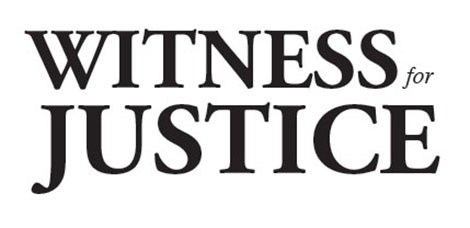Commentary: An Inconvenient Conclusion
 The turmoil of the summer of 2016 continued to march across the headlines this weekend, with news of a community in crisis following another fatal shooting of an African American man in Milwaukee. It has been a cruel summer indeed, marked by mass shootings and the ever-increasing toll of daily gun violence, global violence and terrorism, growing economic disparity and environmental destruction. The underlying dynamics of racism, sexism, classism, homophobia and other forms of oppression and dehumanization are boldly and unapologetically trumpeted in our common life and public dialogue. Add to this mix a highly contentious presidential election with widespread voter discontent, stirred in a cauldron of partisanship, division and disconnection, and we are left with a toxic stew.
The turmoil of the summer of 2016 continued to march across the headlines this weekend, with news of a community in crisis following another fatal shooting of an African American man in Milwaukee. It has been a cruel summer indeed, marked by mass shootings and the ever-increasing toll of daily gun violence, global violence and terrorism, growing economic disparity and environmental destruction. The underlying dynamics of racism, sexism, classism, homophobia and other forms of oppression and dehumanization are boldly and unapologetically trumpeted in our common life and public dialogue. Add to this mix a highly contentious presidential election with widespread voter discontent, stirred in a cauldron of partisanship, division and disconnection, and we are left with a toxic stew.
Perhaps it is no wonder that I find myself reading news story after news story describing a disillusioned and increasingly disengaged electorate. This past Sunday’s Washington Post edition featured the headline, “Millennial voters see 2016 as bad joke.” The article profiles voters from around the country who, in response to the current challenges before our nation and world, hold “scant hope that a new president will change any of it.”
Although I understand the frustration, disgust and anger, I don’t think that gives us license to opt out of the process. Democracy is not meant to be a spectator sport. Casting a vote every four years, perhaps every two years, is the requirement of a vibrant democratic process.
The work of democracy does not begin and end on Election Day. While I applaud the renewed energy of candidates challenging the two-party domination of elections and governance, if we were truly committed to viable candidates and platforms from multiple parties, we would be engaged in building this vision from the ground up, every day, beginning in our local communities with engagement in local elections and decisionmaking and continuing at the state and regional level to the national.
Author and columnist William Rivers Pitt, in an essay posted on the web entitled “The Ballot or the Bullet,” made an important observation about the decline of voter participation and citizen engagement in the United States: “Henry David Thoreau argued for non-participation in a broken system, but a system that has been broken by non-participation requires a different remedy.”
I am afraid that the widespread disenchantment and disengagement of the American electorate will leave us with a self-fulfilled prophecy. No, a new president is not the single cure for all that ails us. But it never has been. Participation in the democratic process – whether through voting, demonstrating, making phone calls and meeting with decisionmakers at every level, writing letters to the editor, calling in to talk radio shows, engaging in ongoing conversation with our friends and family, in our congregations and local communities – is not limited to any one action. It is not focused on any one candidate. It is not limited to any one time of year, or any year in particular. It is not quick, easy or particularly convenient.
I find myself particularly drawn to the endurance events in the Olympics and Para-Olympics – the long-distance running, swimming, cycling and rowing events. They are not nearly as telegenic as sprints and events that feature quick bursts of power and strength. I imagine they often feel lonely and monotonous, with the end far from view. The 2016 election season has reminded me that the work of democracy is much more like a marathon than a sprint. So, let us race with perseverance, and yes, hope.
Sandy Sorensen is Director of the Washington, DC office of the United Church of Christ.
View this and other columns on the UCC’s Witness for Justice page.
Donate to support Witness for Justice through the Neighbors in Need offering.
Click here to download the bulletin insert.
Related News
Demystifying the Stigma of Mental Illness
Like many others, I come from a family system that placed taboos on speaking publicly about...
Read MoreStaying Grounded in Tumultuous Times
For years I have referred to myself as a peace-loving hippie-type pacifist who believes that...
Read MoreVision and Reality
In 1215, at Runnymede in England, King John signed the Magna Carta. The mythos surrounding...
Read More
